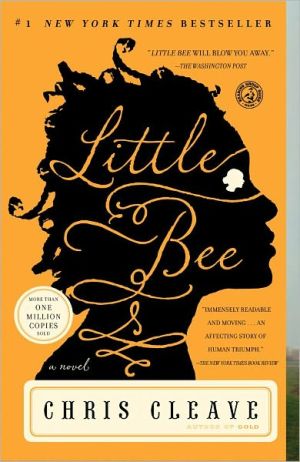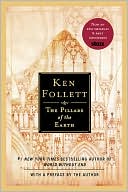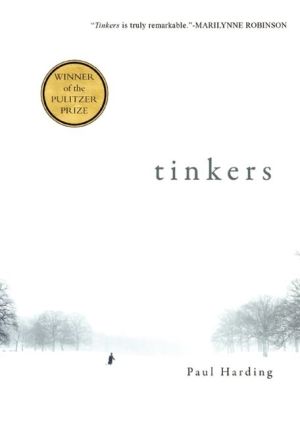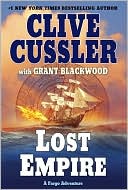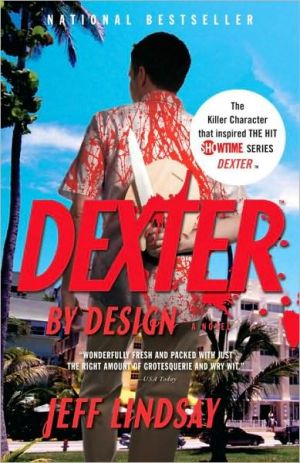Grant
Max Byrd, the renowned author of Jackson and Jefferson, brings history to life in this stunning novel set in America’s Gilded Age. Grant is an unforgettable portrait of a colorful era—and the flawed, iron-willed, mysterious giant at its center.\ \ Ulysses S. Grant pursued a tragic war to its very end. But his final battle starts in 1880, when he loses his race to become the first U.S. President to serve three terms, goes bankrupt, and begins a fight against cancer that will prove to...
Search in google:
Like no one else writing in America today, Max Byrd, the critically acclaimed author of Jefferson and Jackson, makes history come alive. His latest work is an unforgettable portrait of America's Gilded Age and the flawed, iron-willed, mysterious giant at its center who may well be our most uniquely American hero.Ulysses S. Grant pursued a tragic war to its very end, winning a decisive victory for the North. But his final battle begins in 1880, when he loses his race to become the first U.S. President to serve three terms, goes bankrupt, and begins a fight against cancer that will conquer the conquering hero.In this stunning portrayal of a man and a nation, Max Byrd carries us from the troubled drawing room of Grant's sworn enemy Henry Adams and his doomed wife Clover, into the tempestuous Chicago convention halls. We meet the old soldiers Sherman and Sheridan, and the always clever, always scheming Mark Twain, the comic gadfly with a fatal business sense. Grant not only penetrates the secrets of our elusive eighteenth president but exposes the reader to the intimate power-brokering that led to the end of Grant's career, setting the stage for a new era in American history — one defined by politics, not warfare.Publishers WeeklyThe third installment in Byrd's series of political/historical novels (Jefferson; Jackson) is informative and entertaining historical fiction. Although it's touted as similar to Gore Vidal's sensational American chronicle series, Byrd's literary mentor is more like Henry James, as the book features dense prose, a mannerly plot and psychologically real characterizations. A fictional character, journalist and author Nicholas Trist, is the center of this loosely constructed churn through the politics and society of the 1880s. Trist is a one-armed and embittered veteran of Cold Harbor who has spent his years since the Civil War in self-imposed exile. Sent home to America by a French magazine to cover Ulysses S. Grant's bid for an unprecedented third term in 1879, Trist is initially bulldozed by Sen. Don Cameron, Grant's campaign manager, who vows to give the reporter access to Grant only if he'll write laudatory accounts. Elizabeth, Cameron's young and lovely wife, instantly attracts Trist's interest, and the first half of the novel is paced by their parries as the pair seek the courage to consummate their passion. A storm of Washington politics swirls in the background, and the cast of characters is fleshed out by credible portraits of Samuel Clemens, Sylvanus Cadwaller, William T. Sherman, Clover Adams and, of course, Grant himself. In the second half of the book, the action jumps ahead to the next election year and traces Grant's decline into bankruptcy and fatal disease as he frantically tries to complete his memoirs in order to save his family from penury. Trist and Elizabeth get together, but here Byrd makes a tactical mistake (the same one Vidal commits in Empire), by trying to shift the focus to Henry Adams--who, as a character, remains a caricature of a conceited and often cruel cynic. Byrd's research and literary knowledge are impressive, but while his re-creation of period detail, including product placement (Ivory Soap, E.C. Booze whiskey and Heinz Pickles), is excellent, there are a few anachronisms. Even so, this is a fascinating read for any serious student of period when modern politics and society were being mapped out of the smoky shadows of a devastating war. Agent, Virginia Barber. (Aug.) Copyright 2000 Cahners Business Information.\|
"An author," said Maudie Cameron, aged ten, wearing a crisp white pinafore and an expression of pug-nosed disdain, "is a dreadful person who writes books."\ Nicholas Trist III scratched his chin stubble with the palm of his hand and studied a crystal decanter of amber-brown whiskey just to the child's left, on a tabletop otherwise uselessly cluttered with little colored porcelain figures of cats and dogs in bonnets.\ "My father never reads books," Maudie said. "He says books are a damn-blasted waste of time."\ "That's quite enough, Maudie." The child's governess was knitting or sewing or vivisecting something furry and blue in her lap, and without actually looking up she narrowed her eyes in a professional frown. Trist caught a glimpse of his own red-rimmed eyes in one of the room's six mirrors. He placed his hand on his knee and stood up and dropped his hat.\ "You wrote a book," Maudie said.\ "But nobody read it," Trist assured her. Despite himself he licked his lips. Three steps to the decanter. Five steps to the door. Five thousand steps back to the steamship docks at Baltimore. His hat somehow found its way to his fingers again. There were four separate kinds of malarial fever according to the drunken Arab doctor he had seen in Marseilles, and Trist had managed to come down with the least severe but the most persistent strain, though for the life of him just now he couldn't remember the technical Latin name of it.\ "Are you, in fact ... an author, Mr. Trist?" The governess had put down her knitting and was making apologetic little flutters with her hands. "I understood you were Senator Cameron's escort to Chicago."\ "Journalist," Trist said. In the mirror, by a species of optical illusion, he swayed on his feet.\ "Yes. Well." Doubtful flutters now. "I can ring for the Senator's wife — she knows the Senator's schedule, but he should be home himself any moment."\ "You're perspiring," Maudie announced, coming closer. "And your eyes are red." She cocked her head like a sparrow on a curb. "And you haven't got one arm at all."\ "Maudie—"\ "I wonder," Trist said unsteadily to the governess, and stopped to rub his brow with his hat. "A little touch of illness from the ship," he said, "overheated, ocean voyage." He gestured vaguely toward the window, which opened onto the redbrick elegance of Lafayette Square, Washington, D.C., at present not overheated but overcast with low, fat afternoon clouds the color of avocados, at present showing no ship at all anchored under its leafless gray trees. In the center of the Square a colossal bronze statue of his stepfather's old boss Andrew Jackson reared his horse and tipped his tricorn hat to a squadron of pigeons.\ The governess had tended a hundred feverish children. She pulled a silken bell cord behind the whiskey decanter and scooped young Maudie out of harm's way, germ's way. Instructions flew. Doors rapidly opened and closed; a black maid in a black uniform hurried down a hallway in front of him, pointed wordlessly to a door, and disappeared. Trist nodded his thanks to the empty corridor, then slumped his back against the wall.\ In one pocket of his coat he had seventy-three dollars in new American greenbacks, a handful of useless French sous, and six paper packets of Dr. Susens' Patented Tropical Miracle Quinine Powder. In the other pocket he had a dented brass flasket of miracle brandy. The sweat was now running down his cheeks and neck and under his shirt; he was starting to melt from the top down, like a candle. This was the classical pattern — fever first, then Dizziness, Chills, Trembling Extremities, La Nausee. Dr. Susens listed the symptoms briskly and unsympathetically on the packet and recommended one dose every four hours, taken with two tumblers of water. Trist used his teeth to tear open a packet, licked the bitter quinine crystals from his hand like a dog, and then uncapped the flasket and swallowed steadily for as long as he could stand it, till brandy spilled over his chin and leaked out his pores. The Arab doctor had suggested a mixture of arsenic powder and chalk instead of quinine, but in the war Trist had seen arsenic used as a poison as well as a medicine; if he was going to poison himself, it might as well be with brandy.\ He wiped his mouth with his sleeve and braced himself against the wall. Brandy worked fast. He could already feel his veins start to crackle and light up like burning twigs. Quinine made him excitable. He glanced at the dark little privy behind him — what else did you expect of a United States Senator in the year 1879 if not modern indoor plumbing? — and then pushed away from the wall and began to walk. Because he ought to be there, waiting, when Senator Cameron arrived, a journalist ought to be on time and waiting.\ He passed one closed door, a second, turned a corner, and stopped. In a house ten minutes and lost. Trist took another swallow of brandy. The corridor was at least fifty feet long and ended at a heavily curtained window. There were three dim gas lamps spaced on brackets along the wall, but they did little to dispel the inky gloom. Trist had the sensation of walking downhill, as if into a mine. He passed another mirror where somebody's flushed and overheated face floated in the black glass like a burning moon. In his first command in the war, in the summer of 1863, three-fourths of his troops had caught either dysentery or malaria. He blinked at a pencil-thin streak of light creeping under the bottom of a door six feet away. In the war, Senator Cameron's father had been something important in Lincoln's cabinet. Trist moved toward the light and tried to remember the story. The older Cameron was a Pennsylvania politician with a reputation for wholesale thievery. When Lincoln asked a colleague if Simon Cameron was likely to keep it up in Washington, the colleague had scratched his head and said, well, Simon probably wouldn't steal a red-hot stove. When Cameron demanded an apology, the colleague declared, I did not say you wouldn't steal a red-hot stove.
\ From the Publisher“Serious, intricate . . . gripping . . . Byrd is an expert at linking the products of his own imagination with historical facts.”—The New York Times Book Review\ \ “With the license and gifts of a first-rate novelist, Max Byrd has managed in Grant to reveal the man far better than those who have tried before.”—San Francisco Chronicle\ \ “A vibrant, stunning story of Grant’s last years, but best of all, a gripping tale of ‘the reborn nation on the other side of the war.’ ”—Civil War Book Review\ \ “Splendid . . . nothing less than a visit with greatness.”—Associated Press\ \ “Historical fiction doesn’t get any better than this.”—Booklist\ \ \ \ \ Publishers Weekly - Publisher's Weekly\ The third installment in Byrd's series of political/historical novels Jefferson; Jackson is informative and entertaining historical fiction. Although it's touted as similar to Gore Vidal's sensational American chronicle series, Byrd's literary mentor is more like Henry James, as the book features dense prose, a mannerly plot and psychologically real characterizations. A fictional character, journalist and author Nicholas Trist, is the center of this loosely constructed churn through the politics and society of the 1880s. Trist is a one-armed and embittered veteran of Cold Harbor who has spent his years since the Civil War in self-imposed exile. Sent home to America by a French magazine to cover Ulysses S. Grant's bid for an unprecedented third term in 1879, Trist is initially bulldozed by Sen. Don Cameron, Grant's campaign manager, who vows to give the reporter access to Grant only if he'll write laudatory accounts. Elizabeth, Cameron's young and lovely wife, instantly attracts Trist's interest, and the first half of the novel is paced by their parries as the pair seek the courage to consummate their passion. A storm of Washington politics swirls in the background, and the cast of characters is fleshed out by credible portraits of Samuel Clemens, Sylvanus Cadwaller, William T. Sherman, Clover Adams and, of course, Grant himself. In the second half of the book, the action jumps ahead to the next election year and traces Grant's decline into bankruptcy and fatal disease as he frantically tries to complete his memoirs in order to save his family from penury. Trist and Elizabeth get together, but here Byrd makes a tactical mistake the same one Vidal commits in Empire, by trying to shift the focus to Henry Adams--who, as a character, remains a caricature of a conceited and often cruel cynic. Byrd's research and literary knowledge are impressive, but while his re-creation of period detail, including product placement Ivory Soap, E.C. Booze whiskey and Heinz Pickles, is excellent, there are a few anachronisms. Even so, this is a fascinating read for any serious student of period when modern politics and society were being mapped out of the smoky shadows of a devastating war. Agent, Virginia Barber. Aug. Copyright 2000 Cahners Business Information.\ \ \ Library JournalUlysses S. Grant, an undistinguished president who owed his office to a nation grateful for the long-awaited victory in the Civil War, is a historical novelist's dream subject. Living during a tumultuous time and marked by both honor and humiliation, he projected an ambiguous persona. Ehrlich takes this paradoxical man for a wild ride through history. Casting Grant as the evil twin of the real Ulysses S. Grant, an upright neighbor whose identity he stole, Ehrlich hits all the factual highlights, and his inventions have a satirical, gut-busting effect. Like his earlier Big Government (LJ 9/15/98), the new novel humorously dissects the nature of political power and its odd coincidences. In contrast, Byrd's book, though slower to excite the reader, is a serious exploration of the life and times of Grant. Its strong suit is the description of key battles and postwar events through the eyes of a one-armed veteran of the war. For Byrd, the period is a vast canvas on which he limns not only the central figure of Grant but also the lives affected by his habitual fecklessness, wartime hardness, and peacetime obtuseness. Of the two books, Ehrlich's book is a winner for larger fiction collections, while military fiction collections will be enhanced by the Byrd title. [Grant is also portrayed in Richard Parry's That Fateful Lightning: A Novel of Ulysses S. Grant (LJ 5/1/00). --Ed.]--Barbara Conaty, Library of Congress Copyright 2000 Cahners Business Information.\\\ \ \ \ \ Dante RamosA serious, intricate novel . . . Byrd builds his characters with a remarkable accretion of details . . . Byrd is an expert at linking the products of his own imagination with historical facts . . .\ —The New York Times Book Review\ \ \ \ \ Kirkus ReviewsByrd (Jackson, 1997; Jefferson, 1993; etc.) continues his vigorously eclectic presidential series with an intricate view of politics, passion, and scandal after the Ulysses S. Grant presidency, though this story falls short of the high mark set by its predecessor. One-armed but well-connected Nicholas Trist, wounded at Cold Harbor in the Civil War, has returned from Paris as a journalist in 1880 to cover Grant's effort to be reelected for a third term. But a chance encounter with the breasts of Elizabeth Cameron, enchanting, flirtatious young wife of the brutish senator who's Grant's campaign manager, has given him something else to think about. Through a period of becoming a Washington insider, through visits with the likes of Henry Adams—the preeminent Grant-hater, intellectual, and cold fish—and through a rowdy Republican convention in Chicago, in which Grant has only to appear in order to be nominated (but doesn't, and so isn't), Trist seeks a tryst with Lizzie, but she flees from the heat of his desire. Several years later, he returns from abroad again, this time as a successful travel writer, to work on a book about the battlefields of the Civil War. He's drawn once again into the salon of Adams and his self-effacing, long-suffering wife Clover, and, overtaken by a thunderstorm one day while giving Lizzie a battlefield tour, finally begins the affair he's sought for so long. Meanwhile, his book goes nowhere, so, forced to become a reporter again, Trist covers Grant's last days as America's hero battles with disgrace and throat cancer to finish his memoirs. Once the small, quiet man with the ever-present cigar is gone, Trist'sowntenuous connections to an ever-more electric America seem to slip from his one-handed grasp. Trist's detachment is both blessing and curse here: he's sympathetic, but he also simply passes through the tumult of his years in America—and through what is otherwise an impressively complex work of historical fiction.\ \


